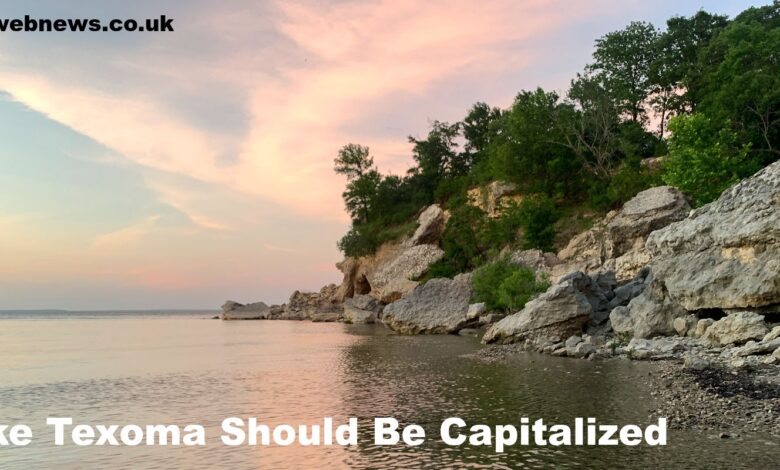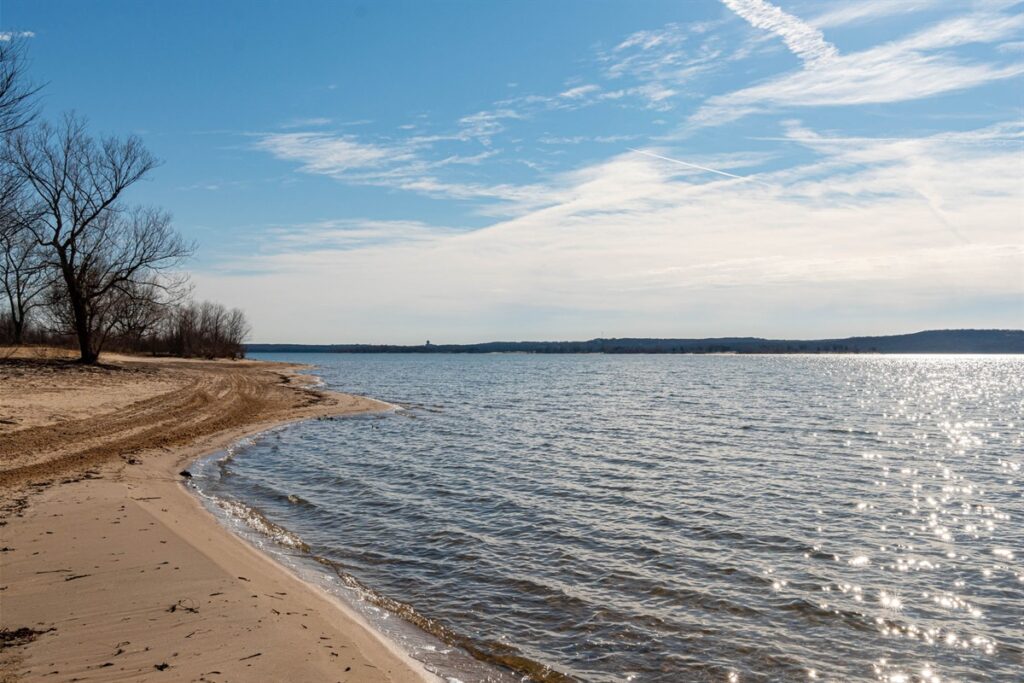Lake Texoma Should Be Capitalized: Why Names Matter More Than You Think

Introduction: The Curiosity Behind “Lake Texoma Should Be Capitalized”
Lake Texoma Should Be Capitalized At first glance, the phrase “Lake Texoma Should Be Capitalized” might sound like a quirky grammar reminder rather than a topic worth a full discussion. But scratch the surface and you’ll find that this idea blends two surprisingly important worlds: language rules and cultural respect. The name Lake Texoma Should Be Capitalized isn’t just a random geographical label—it’s a proper noun tied to history, identity, and regional pride. And when we talk about capitalization, we’re really talking about giving names the recognition and formality they deserve.
Think about it: we wouldn’t lowercase “Paris,” “Mount Everest,” or “Grand Canyon.” So why should Lake Texoma Should Be Capitalized be any different? Whether you’re a writer, student, traveler, or simply someone who values precision, understanding why proper nouns like Lake Texoma deserve capitalization makes you a more thoughtful communicator.
More importantly, capitalization here isn’t just about following grammar rules—it’s also about honoring a place that has cultural, recreational, and economic significance in the United States. So yes, Lake Texoma should be capitalized, and in this article, we’ll explore why.
The Grammar Behind Capitalization: A Quick Refresher

Before diving into the specifics of Lake Texoma Should Be Capitalized, it helps to revisit what capitalization rules actually mean. In English grammar, capitalization is the act of writing a word with its first letter in uppercase and the rest in lowercase (unless it’s an acronym). This signals importance, clarity, and formality.
Proper nouns are the stars of capitalization. These include names of people, places, organizations, and specific titles. That’s why we capitalize “John,” “United Nations,” and “Pacific Ocean.” Common nouns, on the other hand, stay lowercase unless they begin a sentence—words like “city,” “lake,” or “mountain” on their own don’t require capital letters.
Now apply this to Lake Texoma Should Be Capitalized. The word “lake” by itself is a common noun, but when it becomes part of the official name, paired with “Texoma,” it transforms into a proper noun. Just as we write Lake Tahoe or Lake Michigan, writing lake Texoma without capitalization would be grammatically incorrect and visually jarring.
So, from a strict grammar perspective, it’s non-negotiable: Lake Texoma should be capitalized because it’s a proper noun.
Why “Lake Texoma Should Be Capitalized” Deserves Proper Recognition
Grammar rules aside, there’s a deeper layer to why capitalization matters for names like Lake Texoma. It’s about respect. Names carry weight. They reflect identity, heritage, and significance. When we fail to capitalize, we unintentionally diminish that weight.
Lake Texoma, located on the border of Texas and Oklahoma, is one of the largest reservoirs in the United States. It serves multiple purposes: water supply, hydroelectric power, flood control, recreation, and wildlife preservation. For locals and visitors alike, it’s more than just a body of water—it’s a hub of culture, community, and livelihood.
By capitalizing Lake Texoma, we’re doing more than following grammar rules—we’re acknowledging its importance. Just as we wouldn’t write “statue of liberty” without capitalization (because it’s more than just a statue), we shouldn’t write “lake texoma” without the proper respect. Capitalization is a small but meaningful way to show that we value this landmark.
The Cultural Significance of Lake Texoma Should Be Capitalized
When we zoom out from grammar and look at Lake Texoma Should Be Capitalized in context, its significance becomes even clearer. Known as the “Striper Capital of the World,” it attracts millions of visitors annually for fishing, boating, camping, and other outdoor adventures. Local businesses thrive on the tourism the lake generates, making it an economic lifeline for the region.
Historically, Lake Texoma also has roots in major infrastructure projects. Constructed during the 1940s with the Denison Dam on the Red River, it was part of an effort to control flooding and generate hydroelectric power. Over the decades, it evolved into a beloved recreational destination, with its shores dotted with marinas, cabins, and nature trails.
Given this cultural, historical, and economic weight, it’s clear why the phrase “Lake Texoma should be capitalized” goes beyond grammar—it’s also a recognition of its role in the fabric of American life. To lowercase it would almost feel like stripping away part of its identity.
Common Mistakes People Make with Capitalization
Even though capitalization rules are straightforward, mistakes still happen—especially online, where casual typing habits dominate. Let’s break down some common errors people make when referencing places like Lake Texoma:
- Lowercasing proper nouns: Writing “lake texoma” instead of “Lake Texoma” is the most obvious mistake. This usually happens out of laziness or lack of attention to grammar.
- Overcapitalization: On the flip side, some people overdo it, writing “Lake Texoma Is Beautiful In The Summer.” Unless you’re writing a headline, capitalizing every word in a sentence is unnecessary.
- Mixing cases for style: In social media, people sometimes write “LAKE TEXOMA” in all caps for emphasis. While this isn’t technically incorrect, it can look aggressive or unprofessional in formal writing.
- Forgetting modifiers: Words like “the” in “the Lake Texoma region” are lowercase unless they begin the sentence. Many people mistakenly capitalize “The” in the middle of a sentence.
By paying attention to these details, you can avoid sloppy grammar and show respect for names like Lake Texoma.
Capitalization as a Form of Respect
There’s an interesting psychological side to capitalization too—it acts as a form of respect and acknowledgment. Think about when someone misspells your name or types it all in lowercase. It might seem small, but it feels dismissive, doesn’t it? The same principle applies to places.
When we write “Lake Texoma” with proper capitalization, we’re saying: this place matters, it has a name, and we honor that name. This isn’t just about following grammar—it’s about treating names with dignity.
In academic writing, journalism, or even casual blogging, capitalizing Lake Texoma ensures the tone stays professional. It signals to readers that you care about accuracy, and in turn, it builds trust in your voice as a writer.
How Lake Texoma Fits Into Larger Capitalization Rules
To better understand why Lake Texoma should be capitalized, let’s compare it with other naming conventions.
- Rivers and Lakes: We write Mississippi River and Lake Superior. Both contain a common noun (“river,” “lake”) paired with a unique identifier. Texoma falls neatly into this pattern.
- Mountains and Parks: We write Mount Kilimanjaro and Yellowstone National Park. Again, the common noun becomes capitalized when it’s part of the official name.
- Cities and States: New York City and California are always capitalized because they represent specific entities.
From this perspective, failing to capitalize Lake Texoma is as incorrect as writing “mount everest” or “yellowstone park.” Proper nouns are always treated with the dignity of a capital letter.
The Digital Era: Capitalization in Online Communication
In today’s digital-first world, capitalization rules sometimes blur. Social media posts, texting, and even marketing campaigns often bend the rules for style or tone. Some brands even use lowercase logos intentionally (think facebook in its early branding).
However, when it comes to place names like Lake Texoma, consistency and correctness still matter. Search engines, for example, rely heavily on proper capitalization for indexing. Writing “lake texoma” in lowercase could affect SEO or confuse readers looking for credible information.
Furthermore, for online businesses and tourism boards promoting Lake Texoma, capitalization ensures professionalism. Imagine a travel brochure that says “visit lake texoma” in lowercase—it would look careless and unpolished. Digital communication may allow for flexibility, but proper nouns should remain untouched.
Conclusion: Why Lake Texoma Should Always Be Capitalized
So, does it really matter if you capitalize Lake Texoma? The answer is a resounding yes. On the surface, it’s about grammar—it’s a proper noun, and proper nouns demand capitalization. But dig deeper, and you’ll see it’s also about respect, culture, and identity.
Capitalizing Lake Texoma acknowledges its importance as a landmark, honors its historical and cultural weight, and maintains professionalism in writing. Whether you’re a grammar nerd, a travel blogger, a student, or just someone who appreciates accuracy, remembering to capitalize Lake Texoma is a small but significant act.
In short: Lake Texoma should be capitalized because names matter—and the way we write them reflects the value we place on them.


